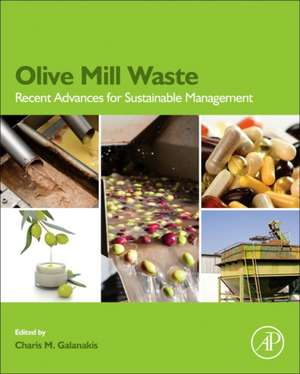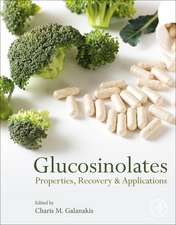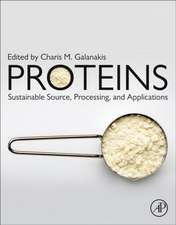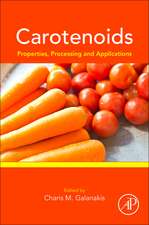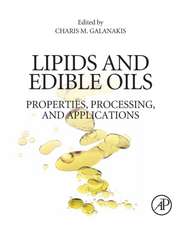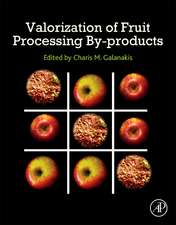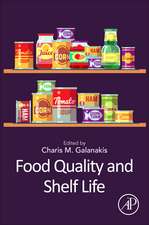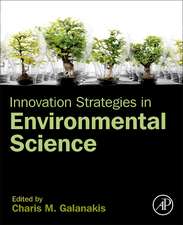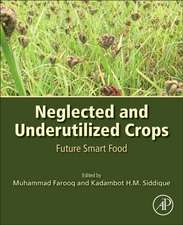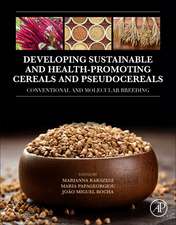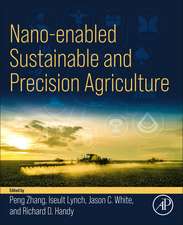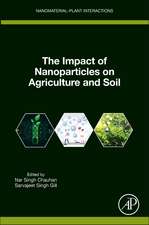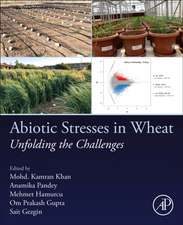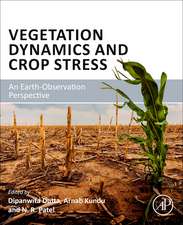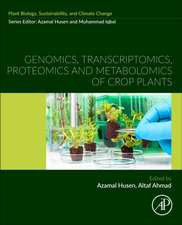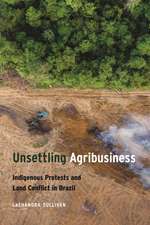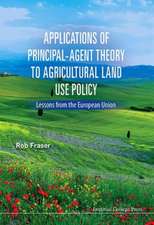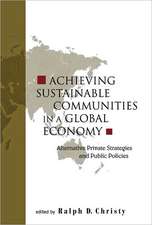Olive Mill Waste: Recent Advances for Sustainable Management
Autor Charis M. Galanakisen Limba Engleză Paperback – 21 dec 2016
Recent research efforts have concluded that the successful management of OMW focuses on three main routes: (a) reuse of water, (b) reuse of polyphenols, and (c) reuse of nutrients. Following this consideration, the book covers sustainable practices in the olive oil industry, revealing opportunities for reutilizing the water of OMW within the process or as s soil amendment.
At the same time, it explores all the possibilities of recovering polyphenols and reutilizing them in target products, such as foods and cosmetics. In addition, the book presents successful cases of industrial OMW valorization through real world experiences.
- Covers the most recent advances in the field of olive mill waste management following sustainability principles
- Fills the gap of transfer knowledge between academia and industry
- Explores the advantages, disadvantages and real potential of processes and products in the market
Preț: 511.43 lei
Preț vechi: 562.01 lei
-9% Nou
Puncte Express: 767
Preț estimativ în valută:
97.86€ • 102.45$ • 80.97£
97.86€ • 102.45$ • 80.97£
Carte tipărită la comandă
Livrare economică 29 martie-12 aprilie
Preluare comenzi: 021 569.72.76
Specificații
ISBN-13: 9780128053140
ISBN-10: 0128053143
Pagini: 300
Dimensiuni: 191 x 235 x 20 mm
Greutate: 0.52 kg
Editura: ELSEVIER SCIENCE
ISBN-10: 0128053143
Pagini: 300
Dimensiuni: 191 x 235 x 20 mm
Greutate: 0.52 kg
Editura: ELSEVIER SCIENCE
Cuprins
1. Olive Oil Production Sector: Environmental Effects and Sustainability Challenges2. Olive Mill Waste: Recent Advances for the Sustainable Management of Olive Oil Industry3. The Biorefinery Concept for the Industrial Valorization of Residues from Olive Oil Industry4. Energy recovery alternatives for the sustainable management of olive oil industry5. Reuse of olive mill waste as soil amendment6. Industrial case studies on the detoxificaton of OMWW using Fenton oxidation process followed by biological processes for energy and compost production7. Integrated Biological Treatment of Olive Mill Waste Combining Aerobic Biological Treatment, Constructed Wetlands and Composting8. Co-Composting of Olive Mill Waste for the Production of Soil Amendments9. The use of olive mill wastewater to promote phytoremediation10. Recovery of bioactive compounds from olive mill waste11. Applications of recovered bioactive compounds in food products12. Applications of recovered bioactive compounds in cosmetics and health care products
